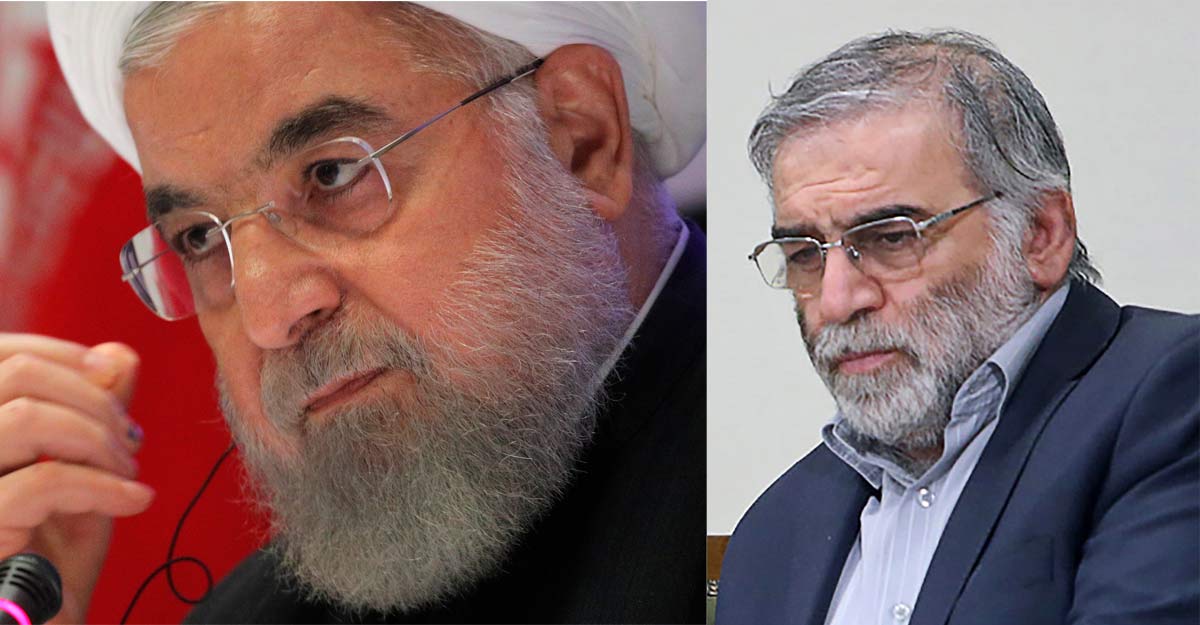DUBAI, (Reuters) – Iran’s supreme leader promised today to retaliate for the killing of the Islamic Republic’s top nuclear scientist, raising the threat of a new confrontation with the West and Israel in the remaining weeks of Donald Trump’s presidency.
Ayatollah Ali Khamenei pledged to continue the work of Mohsen Fakhrizadeh, who Western and Israeli governments believe was the architect of a secret Iranian nuclear weapons programme.
Friday’s killing, which Iran’s president was swift to blame on Israel, could complicate any efforts by President-elect Joe Biden to revive a detente with Tehran that was forged when he was in Barack Obama’s administration.
Trump pulled Washington out of the 2015 international nuclear pact agreed between Tehran and major powers.
Khamenei, who is Iran’s top authority and who says the country has never sought nuclear arms, said on Twitter that Iranian officials must take up the task of “pursuing this crime and punishing its perpetrators and those who commanded it”.
Fakhrizadeh, who had little public profile in Iran but who Israel named as a prime player in what it says is Iran’s nuclear weapons quest, was killed on Friday when he was ambushed near Tehran and his car sprayed with bullets. He was rushed to hospital where he died.
Iranian President Hassan Rouhani told a televised meeting on Saturday Iran would respond “at the proper time”.
“Once again, the evil hands of Global Arrogance and the Zionist mercenaries were stained with the blood of an Iranian son,” he said, using terms officials employ to refer to Israel.
Israeli cabinet minister Tzachi Hanegbi, a confidant of Prime Minister Benjamin Netanyahu, said he did not know who carried out the killing. “I have no clue who did it. It’s not that my lips are sealed because I’m being responsible, I simply really have no clue,” he told N12’s Meet the Press.
Israel’s Army Radio said some Israeli embassies had been put on high alert after the Iranian threats of retaliation, though there were no reports of concrete threats. The radio’s military affairs correspondent said the army was on routine footing.
Netanyahu’s office has declined to comment on the killing of Fakhrizadeh and an Israeli Foreign Ministry spokesman said the ministry did not comment on security regarding missions abroad.
The White House, Pentagon, U.S. State Department and CIA have also declined to comment on the killing, as has Biden’s transition team. Biden takes office on Jan. 20.
“Whether Iran is tempted to take revenge or whether it restrains itself, it will make it difficult for Biden to return to the nuclear agreement,” Amos Yadlin, a former Israeli military intelligence chief and director of Israel’s Institute for National Security Studies, wrote on Twitter.
Under the 2015 nuclear deal, Iran agreed to curb its nuclear work in return for the lifting of sanctions. Once Trump withdrew in 2018, U.S. sanctions were ramped up, driving down Iran’s vital oil exports and crippling the economy. Tehran, meanwhile, sped up its nuclear work.






